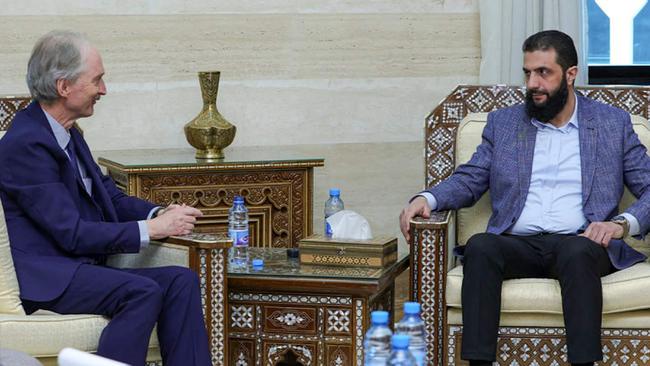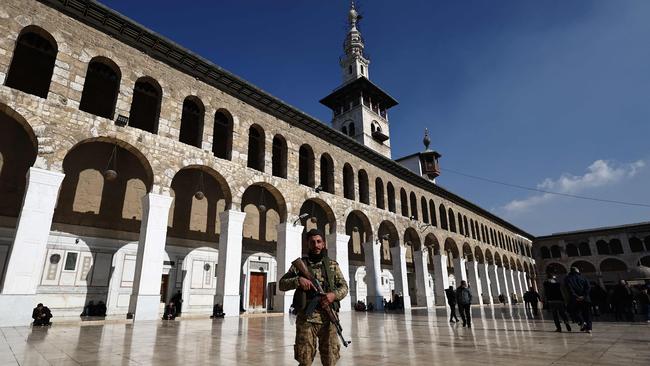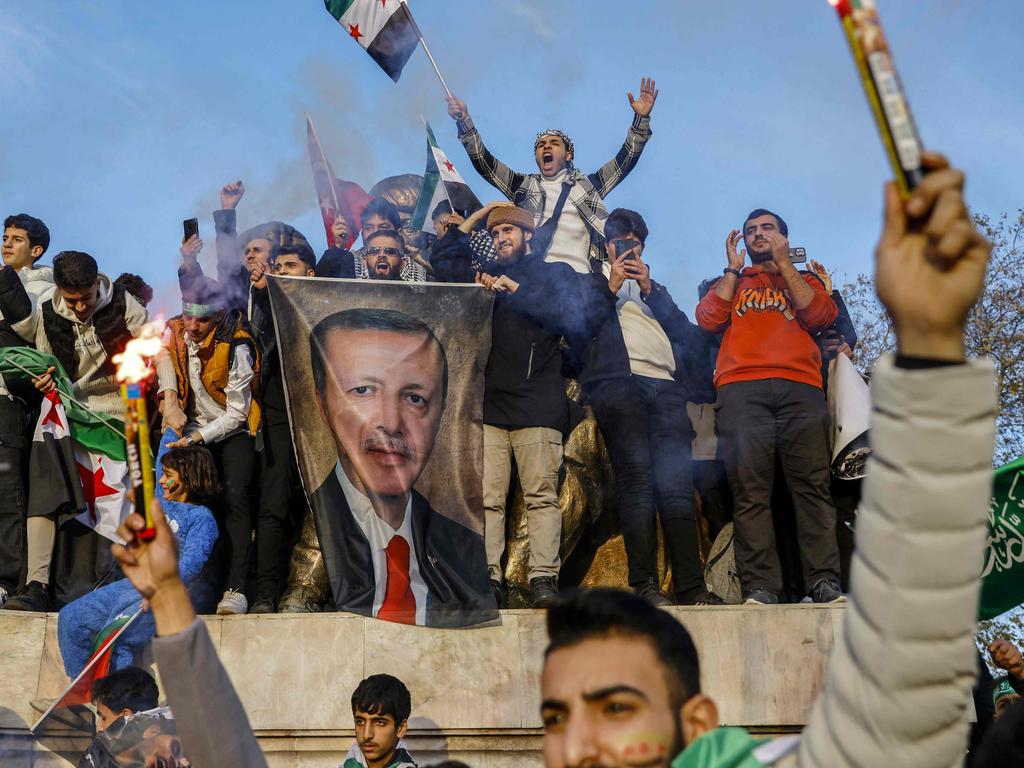Syria ‘won’t be used as launchpad for Israel attacks’: Abu Mohammed al-Jolani
Abu Mohammed al-Jolani has warned Israel to end its airstrikes in Syria and withdraw from territory it took after Bashar al-Assad fled but insists ‘we don’t want conflict.’

Syria’s new leader, Mohammed al-Jolani, has said that he will not allow the country to be used as a launchpad for attacks against Israel or any other state.
Speaking to The Times in his first interview since taking control of the country, Jolani called on the West to lift sanctions imposed on Syria during the Assad regime.
Mr Jolani, who now prefers to be known by his birth name Ahmed al-Shara, warned Israel that it must end its airstrikes in Syria and withdraw from territory it took after Bashar al-Assad fled.
“Israel’s justification was the presence of Hezbollah and Iranian militias, so that justification is gone,” he said. Israel, which took over a buffer zone after Assad’s fall last week, would have to withdraw.
“We are committed to the 1974 agreement and we are prepared to return the UN [monitors],” Mr Shara said. “We do not want any conflict whether with Israel or anyone else and we will not let Syria be used as a launchpad for attacks. The Syrian people need a break, and the strikes must end and Israel has to pull back to its previous positions.”
Mr Shara said he wanted sanctions that were imposed on Syria during Assad’s regime lifted. His group, Hayat Tahrir al-Sham (HTS), which had split from al-Qaeda in Syria, is designated as a terrorist group by the United States, Britain and other countries. Mr Shara had a US$10 million bounty placed on his head by Washington.
Mr Shara said he did not care about his personal designation, but the terrorism label was “a political designation” that was more suited to the Assad regime. “We did military activities,” he said.
“Countries must now lift this designation. Syria is very important geostrategically. They should lift all restrictions, which were imposed on the flogger and the victim – the flogger is gone now. This issue is not up for negotiation.”
There have been concerns that Mr Shara and his fighters will attack Syria’s minorities, particularly Assad’s Alawite sect. Mr Shara said he had met the heads of the minorities, who include Christians and Druze, to reassure them. He said there would be an amnesty for all Syrians except those with blood on their hands, or who took part in the old regime’s torture.
Mr Shara, who spoke to The Times and other international media in Damascus, said his main concern was to stabilise the country and rebuild it ahead of any elections, which he called “somewhat far-fetched now”.
“Half the population is out of the country and many don’t have papers,” he said, referring to the millions of Syrians displaced by the civil war since 2011. “We need to bring the people back from neighbouring countries and Turkey, and Europe.”
Committees would be set up to plan for the transitional period and a constitution, “which will be a long process”, he said. “Any committees will take time.” He did not give a time frame but an adviser suggested it could be a year or more.
He also played down the possibility of imposing Islamic law in the country. “It will be the natural Syria,” he said. “I think Syria will not deeply intrude on personal freedoms,” he said, but suggested “customs” would be taken into account.
Mr Shara received the journalists at the prime ministerial headquarters in Damascus. Having shed his military fatigues in recent days, he wore a charcoal-grey suit and polished black brogues as he set out his vision for the country’s future.
One of his priorities is to convince western countries, including the US and Britain, to rescind their designation of him and his group as terrorists. He has also sought to reassure minorities in Syria, including Christians, Druze and Assad’s Alawite sect, that they will not be oppressed.
Aside from Assad regime officials, everyone will enjoy an “amnesty”, he said, adding that instructions had been issued to his fighters. “Anyone who violates that will be held accountable,” he said.

Mr Shara will struggle to convince sceptical western countries, and Syria’s religious minorities, that he and his HTS group will not seek to impose strict Islamic law in a traditionally secular country where alcohol flows freely in restaurants and bars and women dress relatively liberally compared with others in the region.
He said he had met the heads of the minorities, which include several Christian denominations, to assure them. Assad’s Alawite minority, which had controlled the army, key ministries and businesses, also had nothing to fear, although those who took part in the Assad regime’s atrocities would be held “accountable”.
Mr Shara, who had ruled the northwestern part of Syria before an offensive that quickly toppled Assad’s regime this month, had been supported by Turkey. The US, Britain and other western countries had opposed Assad and are now mulling how to deal with the new leader, who led al-Qaeda’s branch in Syria before splitting with them in 2016.
He dashed any hopes for quick elections in the country after decades of dictatorship, saying the Assad regime had destroyed the country and stifled any political activities. The civil war that erupted in 2011, and which killed 500,000 people, had also forced millions of Syrians to flee the country as refugees in neighbouring states and Europe.
Assad’s regime had been propped up by Russian forces and Iran. The latter had brought thousands of militiamen to fight for the dictator. Mr Shara’s cause, however, had also attracted thousands of foreign fighters, including Britons, and many of them are wanted by their home countries.
Mr Shara said: “[Their numbers are vastly exaggerated by the media. No one intends to use Syria as a base to threaten other countries.” The fighters, he said, had defended Syria with their blood and “deserve to be rewarded”. He suggested they might be given citizenship but left the matter to a future legal “committee”.
He did not address the fate of Russia’s soldiers in the country but an adviser said that there were ongoing negotiations with Moscow on their presence in two military bases on the coast.
The Times




To join the conversation, please log in. Don't have an account? Register
Join the conversation, you are commenting as Logout